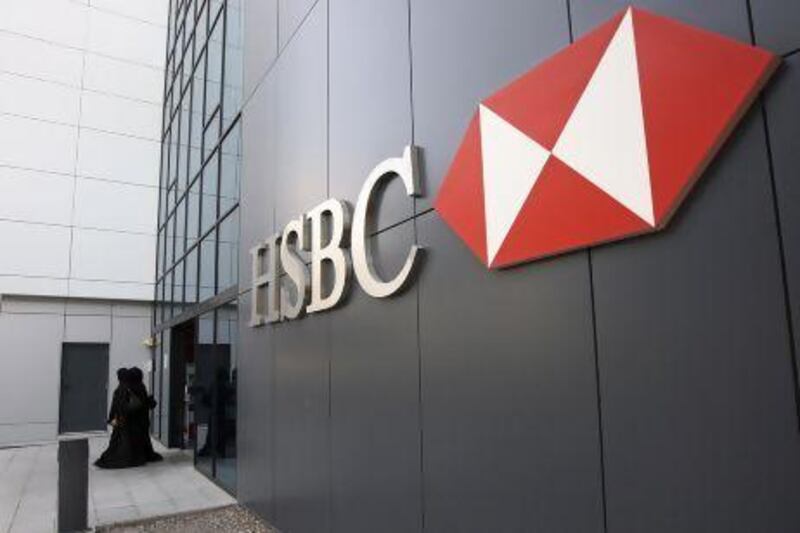Banks have begun rejecting customers from countries facing sanctions, effectively shutting out Syrian and Iranian nationals from the global financial system.
Residents from several Middle Eastern countries under sanction by the United States and the European Union are being turned away by HSBC and Barclays if they cannot ensure that prospective customers will not expose them to penalties from regulators.
The restrictions come as US authorities have taken a firm line against sanctions violations, and compliance costs mount for banks.
HSBC said as part of a global policy it is turning away new customers from Middle Eastern countries subject to sanctions and closing some accounts that do not have dedicated managers to assess clients' sources of funds.
More affluent customers with more than Dh100,000 (US$27,228) available to deposit or monthly salary transfers exceeding Dh15,000 are likely to avoid the latest measures.
Countries facing sanctions in the region include Syria, Iran and Sudan.
"We must apply enhanced oversight on any customer with connections to sanctioned countries," HSBC said.
"Where we are unable to maintain sufficiently detailed information about such a customer through a relationship managed account, we are having to discontinue that relationship."
The bank said that affected customers who cannot satisfy "know-your-customer" requirements had been given 30 days' notice to transfer their accounts to other banks.
"We recognise that this will cause customers some inconvenience," the bank said. "We are committed to doing everything possible to ensure a smooth transition for affected customers to a new bank of their choice."
Barclays is also turning down financial services to customers with potential ties to sanctioned Middle Eastern countries.
The British bank does not open corporate accounts for companies from Syria, Iran or Sudan and turns down certain transactions with residents of those countries based on their potential exposure to sanctions. The bank says it takes every effort to ensure it does not breach sanctions.
"Barclays works closely with regulators and abides by their requirements in all the jurisdictions we operate in," the bank said in a statement.
The UAE Central Bank applies United Nations sanctions, but is not forced to implement unilateral sanctions issued by western nations.
However, Washington has aggressively pursued banks with US licences found to be in breach of sanctions. Treasury department officials toured the Emirates last month to discuss illicit finance with regulators.
Last year, HSBC and rival lender Standard Chartered faced penalties of more than $2.5bn to settle claims from US authorities over past breaches of sanctions, including prohibitions against Iran.
Barclays paid $298 million in 2010 to settle fines related to breaches of sanctions against countries including Iran, Sudan, Cuba and Myanmar.
Other banks said they had not taken unilateral decisions to stop servicing clients from sanctioned countries.
"Standard Chartered does not sever relationships with clients based on their nationality and we adhere to the highest standards of compliance to local and international regulations," the bank said.
Mashreqbank also said it had not stopped dealing with Syrian residents as a result of western sanctions.
"There's no discrimination towards opening any account at this point in time," said Farhad Irani, the head of Mashreqbank's retail banking group. "If they have a residency permit here and a business here, we'll open accounts for them."
The bank makes an exception for Iranian nationals, turning away those who have trading relationships with sanctioned companies.
Mashreqbank does not apply a blanket ban on such accounts, but instead uses enhanced know-your-customer checks to ensure its customers do not expose it to sanctions, Mr Irani said.
Scores of residents of countries affected by the Arab Spring fled to the UAE during the past two years, during which period it has been one of the most stable economies in the region.
In the meantime, Syria's financial system has been brought to the brink of collapse by looting and bank robberies amid the chaos of the country's civil war, while Iran's economy has been hit by a western oil embargo and a plunging rial.





